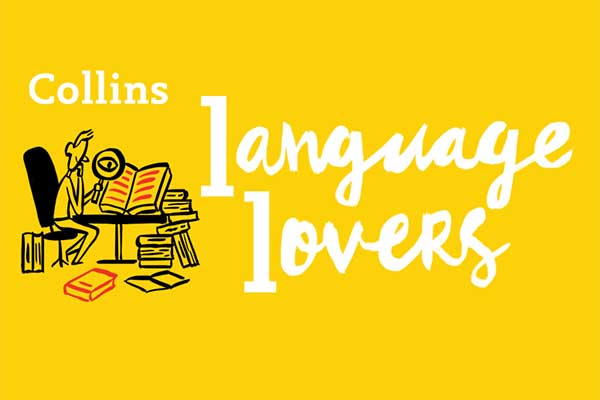English is a language that has seen its vocabulary shaped and influenced by many neighbouring tongues from across the globe over the course of time…including some that are a bit closer to home.
There are several native Celtic languages spoken in Ireland, Scotland, and the Isle of Man that have come to be grouped together as the Gaelic family of languages. Irish Gaelic (more commonly known as Irish, or Gaelige) is spoken as a first language by roughly 80,000 speakers across the island of Ireland, and in the last Irish census, over 1.7 million people were reported as having some level of ability to speak the language. Scottish Gaelic (or Gàidhlig) has around 57,000 speakers in Scotland, and another 2,000 or so speakers based in Nova Scotia, Canada. And though its last native speaker died in 1974, Manx Gaelic (or Manx) has been brought back from the brink in the last few decades: about 1,800 people are now reported to have some skills in the language.
Given the geographic proximity between these languages and English, the number of Gaelic loanwords that appear in English is relatively small. But they do exist. Here are just a few examples of the variety of Gaelic terms that have made their way into English.
There’s long been debate over whether the Scots introduced the Irish to whisky, or whether the Irish brought whiskey over to Scotland. What’s clear is that the English word has its roots in the Gaelic name uisce beathadh (Irish: uisce beatha; Scot: uisge beatha), itself a calque of the Latin term aqua vitae, or “water of life”.
Whisky Galore, the comic novel (later film) by Compton Mackenzie, tells the story of how a group of Scottish islanders receive an unexpected bounty in the form of several hundred cases of not-quite-legally-acquired uisge beatha following a shipwreck. The word “galore” is another Gaelic term that’s come into English from the word go leór (Irish: go leor; Scot: gu leòr), which means “enough” – literally, “to sufficiency” (“Whisky To Sufficiency” – not quite as catchy, is it?).
Defined in the CED as “an informal social gathering”, the word “ceilidh” has come directly from Gaelic (Irish: céilí; Scot: cèilidh). We tend to associate the English word with a specific type of event – one that usually involves loud music and trying to remember the country dancing lessons you may have received at school – but the Gaelic word simply means “a visit” or “to visit”, and is itself linked to the word céile (Irish: céile; Scot: cèile), which means “companion”.
The world of advertising and marketing could not seem further away from the practices of Celtic clan warfare, but oddly enough, the two are linked by the word “slogan”. The word itself comes from the Gaelic term sluagh ghairm (Irish: sluaghairm; Scot: sluagh-ghairm) – sluagh meaning “army” or “host”, and gairm meaning “cry” or “call”. Originally, the English “slogan” had a similar meaning of a rallying or assembly cry used on the battlefield. The word then came to be used of any motto or distinctive phrase used by a particular group, eventually gaining the now widely understood sense of an advertising catchphrase.
The word sluagh can also mean “crowd” or “multitude”, and this particular sense has also given us the word “slew”, used informally (often in North American English) to mean “a lot of” or “a great amount”.
“The gift of the gab” has become a bit of an Irish trope, but the phrase itself very likely has Gaelic roots. The modern Irish geab means “chat” or “talk”, which is in turn possibly linked to the word gob, or “beak” (used in Irish and Scottish Gaelic). This could also explain the use of “gob” in English as a slang word for “mouth”, especially in northern dialects of English.
The exact origins of some words can be tricky to ascertain, especially where that word has a few different senses. The word “twig” is a good example – its use as a verb to mean “to understand suddenly” or “to realise” seems quite unconnected to the noun sense of “a small branch”, which comes from Old Norse. One proposal is that the verb may have come into English from the Gaelic verb tuig (“to understand” – again, used in Irish and Scottish Gaelic). It’s certainly a plausible theory, though not all etymology experts subscribe to it.
Given the relative scarcity of Gaelic loanwords into English, examples of uniquely Manx Gaelic borrowings are few and far between. One possible case of a link to Manx might be found in the name given to one of the Isle of Man’s chambers of legislature, the House of Keys. Some believe “Keys” has been derived from a mishearing of its Manx name, Yn Kiare as Feed, “the Four and Twenty” – a reference to the number of members.
Written by Gina Macleod, language content editor.
All opinions expressed on this blog are those of the individual writers, and do not necessarily reflect the opinions or policies of Collins, or its parent company, HarperCollins.




collins_dictionary_official
The home of living language. #wotd #wordlovers #collinsdictionary
Read our word of the week definitions and blog posts: